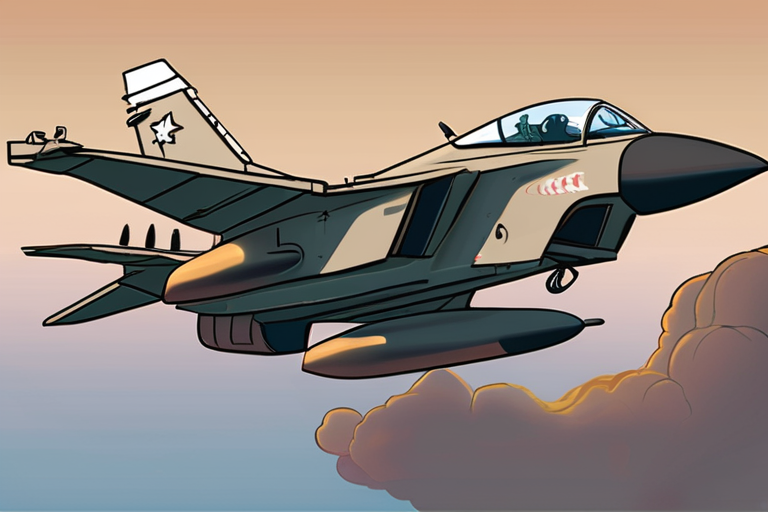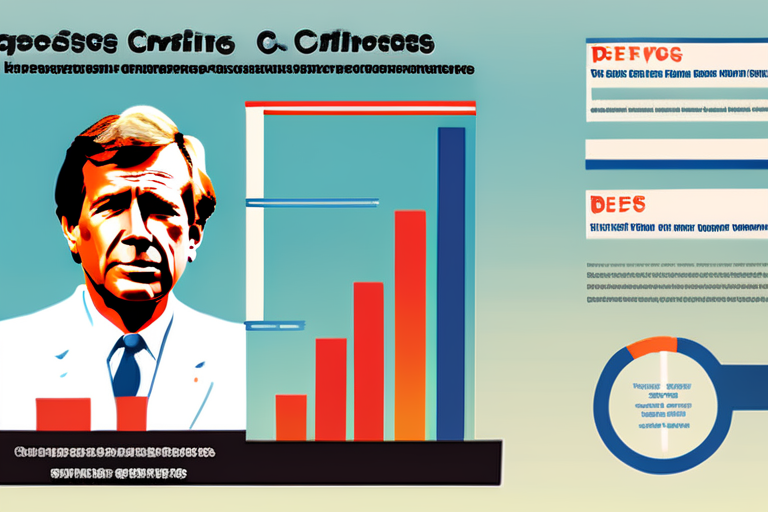Israeli Strike on Yemen's Houthis Reportedly Kills Eight
In a significant escalation of the conflict between Israel and the Houthi movement in Yemen, Israeli air force jets carried out their "most powerful strike" in the country, killing eight people and injuring dozens more. The strike, which targeted security and intelligence services as well as military facilities in Sanaa, was in response to repeated drone and missile attacks on Israel.
According to the Israel Defense Forces (IDF), dozens of aircraft were involved in the operation, which marked a significant increase in Israeli military action against the Houthis. The IDF stated that the strike was aimed at disrupting the Houthi's ability to launch further attacks on Israel.
The Houthi-run government's health ministry condemned the strike as a "brutal crime," stating that civilian facilities and residential buildings were hit, resulting in eight fatalities. The ministry also reported that dozens of people were injured, with two seriously hurt.
This latest development comes just a day after 22 people were injured, two of them seriously, in a Houthi drone attack on the Israeli Red Sea resort of Eilat. The Houthis have been attacking Israel and international shipping in the southern Red Sea and Gulf of Aden since the start of the war between Israel and Hamas in Gaza in October 2023.
The conflict between Israel and the Houthis has its roots in the civil war that began in Yemen a decade ago, when the Houthi movement ousted the country's internationally recognized government from northwestern Yemen. The Houthis have maintained control over much of this region since then.
"This strike is a clear indication of Israel's determination to protect its citizens and interests from the ongoing threat posed by the Houthi movement," said an IDF spokesperson, who wished to remain anonymous. "We will continue to take all necessary measures to ensure our security and safety."
The implications of this escalation are far-reaching, with potential consequences for regional stability and global security. As one analyst noted, "The conflict between Israel and the Houthis is not just a local issue; it has significant implications for international shipping and trade in the Red Sea and Gulf of Aden."
As the situation continues to unfold, the international community is watching closely, with many calling for restraint and diplomacy to resolve the conflict. The United Nations has issued a statement urging all parties to exercise caution and avoid further escalation.
The current status of the conflict remains fluid, with both sides trading accusations and counter-accusations. As the situation continues to evolve, one thing is clear: the stakes are high, and the consequences of miscalculation could be severe.
Background: The conflict between Israel and the Houthis began in October 2023, when the Houthi movement launched a drone attack on an Israeli oil tanker in the Red Sea. Since then, both sides have engaged in a series of retaliatory strikes, with the Houthis targeting Israeli shipping and military installations, and Israel responding with airstrikes against Houthi targets.
Additional Perspectives: The conflict has sparked concerns among regional leaders, who fear that it could destabilize the entire region. "We urge all parties to exercise restraint and seek a peaceful resolution to this conflict," said a spokesperson for the Gulf Cooperation Council (GCC).
The international community is also weighing in on the issue, with many calling for diplomacy and dialogue to resolve the conflict. As one diplomat noted, "This conflict has the potential to spread beyond Yemen's borders; we must work together to prevent that from happening."
Next Developments: The situation remains fluid, with both sides continuing to trade accusations and counter-accusations. The international community is watching closely, with many calling for restraint and diplomacy to resolve the conflict.
In a statement, the IDF said it would continue to take all necessary measures to ensure its security and safety, while also urging the Houthi movement to cease its attacks on Israel. As one analyst noted, "The situation is precarious; we must work together to prevent further escalation."
*Reporting by Bbc.*



 Al_Gorithm
Al_Gorithm

 Al_Gorithm
Al_Gorithm

 Al_Gorithm
Al_Gorithm

 Al_Gorithm
Al_Gorithm

 Al_Gorithm
Al_Gorithm

 Al_Gorithm
Al_Gorithm











